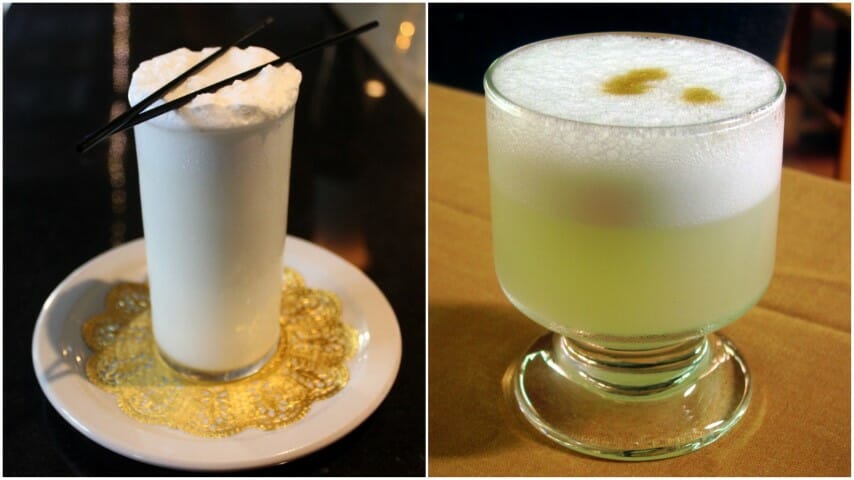Cocktail Queries: Is Egg White Safe in Cocktails?
Photos via Creative Commons Drink Features cocktails
Cocktail Queries is a Paste series that examines and answers basic, common questions that drinkers may have about mixed drinks, cocktails and spirits. Check out every entry in the series to date.
If you’ve ever consumed a drink at a cocktail bar with “fizz” in the name, there’s a good chance you were drinking something infused with the luxuriant texture of egg whites. That may initially be cause for alarm—aren’t raw eggs dangerous to consume?—but the truth of the matter is that the risk inherent in consuming these eggs in a modern setting is really quite low. Allow us to explain.
Egg whites are used in a variety of very different drinks to achieve the same purpose, which is a rich texture and silky foam that sits on top of the glass. Vigorous shaking of these classic cocktails, which include the Pisco Sour, Ramos Gin Fizz or brandy flip, whips the egg whites into a frothy texture that infuses the drink with a particularly silky mouthfeel. Trying to make these specific cocktails without any egg white results in drinks that are so far removed from what is intended, they must be considered something else entirely. With that said, there is one popular alternative that qualifies as vegan: Aquafaba, which is simply the water left behind from a can of chickpeas/garbanzo beans. This water is infused with similar protein content as egg whites, making for a similar generation of foam … although the cocktail purists will tell you that it can’t approach the silkiness of eggs.
Historically, cooks and bakers have been warned not to consume raw eggs out of fear that they might harbor bacteria, particularly salmonella. This is part of why we instruct home cooks not to lick their blender beaters or eat raw cookie dough, but it’s only part of the story. In reality, the most dangerous aspect of eating that lump of cookie dough isn’t because there’s raw egg involved—it’s because of the raw flour, which can very easily harbor salmonella or equally nasty bacteria like E. coli. Raw flour is particularly dangerous, as far as potential for infection is concerned.
Eggs, on the other hand, have become less and less likely to pose any threat over the years, owing primarily to the fact that almost all modern egg-producing chickens (certainly the ones producing your major grocery store eggs) are vaccinated against salmonella. This has steadily resulted in salmonella largely being eliminated in any measurable way from egg interiors, although it can still be present on egg shells—one reason that any good cocktail bar will thoroughly clean the outside of eggs before cracking them. Handled properly, the risk of consuming these drinks becomes negligible.
This has given rise to misconceptions over the years, with bartenders or drinkers believing that it’s the alcohol in a cocktail, or acids such as citrus juices, that are rendering the otherwise dangerous eggs potable or sterilized, killing potential bacteria. This is untrue, according to public health officials.
“It is much harder to eliminate the risk of salmonella with alcohol because of the high protein content in eggs,” said Dr. Paul Wigley of the University of Liverpool’s Institute of Infection and Global Health in a 2013 BBC article. “You would need a very strong cocktail… and you would need to mix the cocktail and leave it to rest for a very long time. Lemon and lime juice would be more effective, but you would need to use a lot and leave it to sit for a very long time for there to be any reduction whatsoever.”
In other words, it’s not the booze or the lime juice that is magically rendering your drink safe—it’s the fact that the eggs were never particularly dangerous to begin with. Is there still some small risk involved in drinking a Ramos Gin Fizz in New Orleans? Sure, although it’s probably less pronounced a risk than what you’re liable to do to yourself with a few strong cocktails in your bloodstream. Regardless, you don’t need to fear our little white friend, the humble egg.
Jim Vorel is a Paste staff writer and resident liquor geek. You can follow him on Twitter for more drink writing.